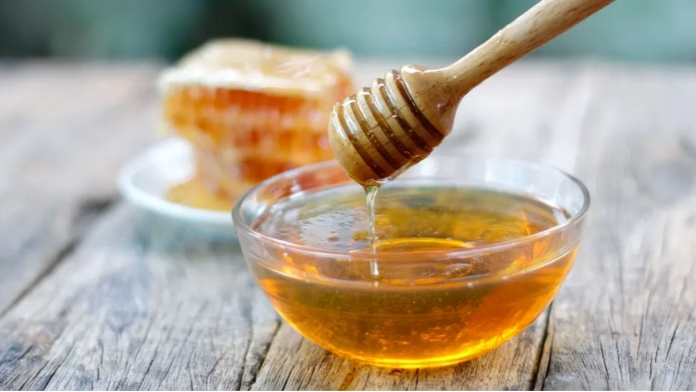The rainy season is a time of refreshment for the environment, bringing cooler temperatures and replenishing the water supply. However, for those suffering from asthma, it can be a challenging period due to increased humidity and the proliferation of allergens. Asthma is a chronic respiratory condition that affects millions of people worldwide, causing airway inflammation and narrowing, leading to breathing difficulties. While there are various medical treatments available, some individuals seek natural remedies to alleviate their symptoms. One such remedy is honey, which has been used for centuries for its potential health benefits. This article explores how honey can help relieve asthma symptoms during the rainy season and offers practical tips for incorporating honey into your asthma management plan.
Understanding Asthma and Its Triggers:
Before delving into honey’s potential benefits, it’s crucial to understand asthma and its triggers. Asthma is a chronic lung disease characterized by inflammation and constriction of the airways. Common symptoms include wheezing, shortness of breath, coughing, and chest tightness. While the exact cause of asthma remains unknown, certain triggers can exacerbate symptoms. These triggers vary from person to person and may include pollen, mold spores, dust mites, pet dander, respiratory infections, cold air, and humidity.
The Impact of Rainy Season on Asthma:
During the rainy season, humidity levels tend to rise, creating a breeding ground for mold and dust mites. Additionally, damp environments promote the growth of mold, a common allergen that can trigger asthma symptoms. For some individuals, the increase in airborne allergens and the rise in humidity may lead to worsening asthma symptoms, making it crucial to adopt strategies to mitigate the impact.
The Therapeutic Properties of Honey:
Honey is a natural substance produced by bees using nectar from flowers. It has been used for medicinal purposes for centuries, with many cultures recognizing its therapeutic properties. Honey contains an array of beneficial compounds, including antioxidants, vitamins, minerals, and enzymes. It also possesses antimicrobial and anti-inflammatory properties, making it a potentially valuable addition to asthma management.
1. Soothing Effect on the Airways:
Honey’s anti-inflammatory properties may help soothe inflamed airways in individuals with asthma. Consuming honey or inhaling the steam of hot water mixed with honey can potentially alleviate respiratory inflammation, reducing symptoms like wheezing and coughing.
2. Antibacterial and Antiviral Properties:
Respiratory infections are common asthma triggers. Honey’s natural antibacterial and antiviral properties could aid in preventing and managing infections, potentially reducing the frequency of asthma exacerbations during the rainy season.
3. Immune System Support:
Honey contains antioxidants that support the immune system, helping the body fend off infections and allergens. A stronger immune system can contribute to better asthma control and reduced symptom severity.
Using Honey for Asthma Relief:
While honey may offer potential benefits for asthma relief, it is essential to use it safely and effectively. Here are some practical tips for incorporating honey into your asthma management plan:
1. Choose Raw, Unprocessed Honey:
Raw, unprocessed honey retains more of its beneficial properties compared to the commercially processed varieties. Look for local honey, as it may contain traces of pollen from local plants, potentially desensitizing the immune system to pollen allergens over time.
2. Honey Consumption:
You can consume honey by incorporating it into your diet or by dissolving a teaspoon in warm water and drinking it as a natural cough remedy. However, remember that honey is high in natural sugars, so moderate consumption is essential, especially for individuals with diabetes.
3. Honey Steam Inhalation:
To experience the potential respiratory benefits of honey, add a spoonful of honey to a bowl of hot water and inhale the steam while covering your head with a towel. The steam may help soothe airway inflammation and ease breathing difficulties.
4. Avoid Giving Honey to Children Under One Year:
Honey can contain spores of Clostridium botulinum, a bacterium that can lead to infant botulism in children under one year old. Therefore, honey should not be given to infants until they reach the age of one.
Final Thoughts:
The rainy season can pose challenges for individuals with asthma due to increased humidity and exposure to allergens like mold and dust mites. While medical treatments play a crucial role in managing asthma, some people seek complementary remedies like honey to alleviate symptoms and improve overall well-being. Honey’s potential anti-inflammatory, antibacterial, and immune-supportive properties make it an intriguing option for asthma relief during this season. However, it is essential to use honey safely and effectively, choosing raw, unprocessed varieties and moderating consumption. As always, individuals with asthma should consult their healthcare providers before incorporating any new remedy into their asthma management plan.
Incorporating honey into your daily routine may provide additional support in managing asthma symptoms during the rainy season, complementing conventional treatments and helping you breathe easier in the face of environmental challenges.





